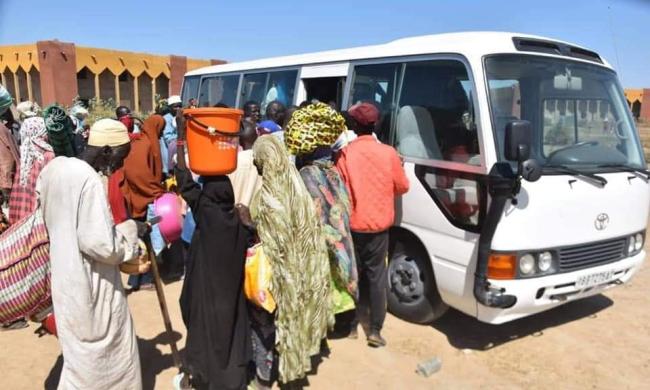Chad has repatriated at least 600 Nigerians who were found to be irregular migrants, some engaging in street begging, after entering the country without proper documentation.
The Nigerian migrants, who hailed from states such as Borno, Kano, Sokoto, and Kaduna, were sent back home after the Chadian government took action against their presence.
Mr. Muhammed Barkindo, the Director-General of the Borno State Emergency Management Agency (SEMA), confirmed the repatriation on Monday during a press briefing in Maiduguri, the capital of Borno State. He explained that many of the migrants had arrived in Chad without the necessary legal permits, entering the country through irregular channels.
Irregular migration, which is different from illegal immigration, refers to the movement of people across borders without the required documentation, or the act of staying in a country beyond the permitted timeframe or without the necessary visa or residence permit. This includes individuals who enter a country with false documents or through unofficial border crossings.
Thousands Flee Nigeria’s Insecurity
The issue of irregular migration has become more pronounced in recent years as insecurity in Nigeria continues to drive many citizens to seek refuge in neighboring countries. Particularly in Borno State, where the Boko Haram insurgency has ravaged communities since 2019, many Nigerians have been forced to flee their homes in search of safety and stability.
Chad, alongside Cameroon, has served as one of the destinations for these displaced individuals. However, while fleeing conflict and terror, many of these migrants face further hardships in foreign lands. Barkindo highlighted that the 600 Nigerians repatriated were living in dire conditions in Chad, with many resorting to begging on the streets to survive.
Difficult Conditions Faced by Migrants
The Nigerian migrants, according to Barkindo, had faced significant challenges while living in Chad, where many struggled to find stable employment or housing. With no legal status, they were often pushed into precarious situations, surviving by engaging in street begging in various parts of the country.
“Many of them were living under very harsh conditions, resorting to begging to survive in Chad,” Barkindo said. “These people were not only without the necessary papers but also found themselves trapped in a situation where they could not fend for themselves.”
He further stated that the repatriated Nigerians had been in Chad for some time, living in limbo. For many, the difficult living conditions led to a desire to return to their home country, despite the ongoing insecurity in their home states.
Efforts to Support Repatriated Nigerians
In an effort to ease their return, SEMA, the agency Barkindo leads, provided essential support to the repatriated migrants. They were given logistical assistance, including transportation and food supplies. Each migrant also received N10,000 to help with travel expenses back to their home states.
While some of the migrants expressed their desire to return home due to the hardships they faced in Chad, others hoped for a better future despite the challenges of returning to a country still grappling with insecurity.
“The situation in Chad was very difficult, and many of us felt we had no choice but to go back home,” one of the repatriated migrants shared. “We hope things improve in Nigeria, so we can live a better life.”
Irregular Migration on the Rise
This repatriation is a reminder of the broader issue of irregular migration, a growing concern in many parts of Africa. While some people flee insecurity or poverty, others migrate in search of better opportunities. However, without the proper documents, migrants can find themselves vulnerable to exploitation, abuse, and even deportation.
The situation in Chad reflects the difficulties faced by millions of migrants who, despite seeking safety and better prospects, often encounter new challenges in their host countries. While international migration laws protect asylum seekers, irregular migrants, who might not have applied for asylum, are often left to navigate legal gray areas, leading to harsh realities on the ground.
The Growing Impact of Nigeria’s Security Crisis
Barkindo emphasized that many of the repatriated migrants were from Borno, a state in northeastern Nigeria that has borne the brunt of insurgency by Boko Haram and other armed groups. The continued violence in the region has left many residents with no choice but to flee their homes in search of peace and stability, often turning to neighboring countries as a last resort.
With Nigeria’s ongoing security challenges, the issue of irregular migration could continue to rise. The humanitarian crisis in Borno State alone has resulted in large numbers of internally displaced persons, many of whom seek to cross borders illegally or without proper documentation.

